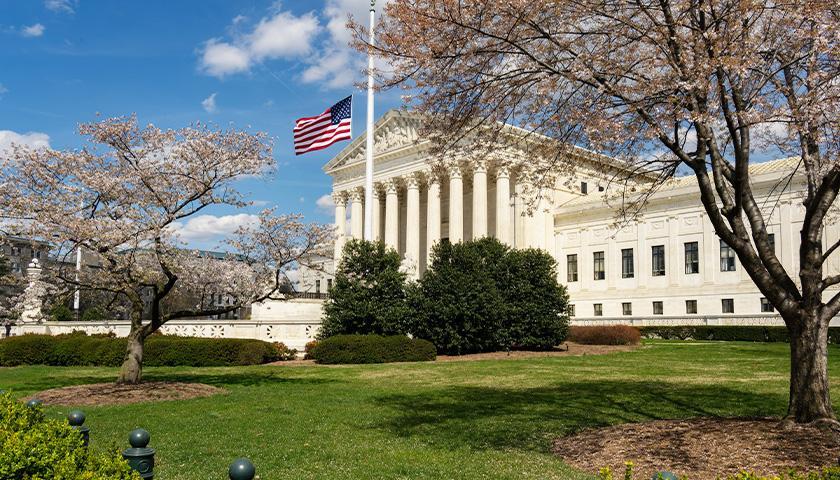by Natalia Mittelstadt
Much as the Obama IRS targeted conservative groups for audits, the tax collection agency has subjected an elections nonprofit to a battery of prying questions about its policy positions, language choices and methodology for arriving at correct opinions and conclusions prior to peremptorily rejecting its application for tax-exempt status without appeal.
Starting in 2010, the IRS Exempt Organizations Unit directed by Lois Lerner targeted the Tea Party and other conservative groups for intrusive scrutiny, effectively freezing them with lengthy audits. After the politically motivated harassment was exposed in 2013, the Obama administration claimed to find the IRS actions “inexcusable.” But after Lerner invoked her 5th Amendment right against self-incrimination to avoid testifying before Congress and the House cited her for contempt, the Obama Justice Department declined to pursue criminal charges.
In an alleged targeting action reminiscent of the Lerner scandal, the Biden IRS last year subjected election education nonprofit Adams, Baldwin, and Covey Foundation, Inc. (ABC) to interrogation the group believes infringed its speech rights under the First Amendment.
The IRS questions are “further evidence that the Biden administration believes it has the authority to license thought and speech, and it doesn’t,” said Phill Kline, a founder of the organization.
The allegedly improper questions were contained in an interrogatory the agency sent the foundation in response to its application for tax-exempt status. The organization was instructed to respond to the questions under penalty of perjury.
Some of the IRS questions reflect the far-reaching efforts by the Biden administration in collaboration with allies in the corporate and nonprofit worlds to recast dissent from official affirmations of the invariant purity of U.S. elections as “disinformation” subject to censorship and even prosecution in the name of domestic security or “democracy.”
“The thought police have found a home in the Biden administration,” Kline said, lamenting the enlistment of IRS enforcement muscle in the curbing of dissent.
Examples of the IRS questions and responses by Kline include:
IRS: “Have you held [a] particular position or view on certain issues or topics? If you do, please detail the position or views of your organization.”
Kline: “Please provide the justification for this request and also whether similar requests are made of all non-profit organizations addressing these and similar issues. [Adams, Baldwin, and Covey Foundation] views the Constitution as an enduring document that honors in application the intrinsic value of each and every individual achieved by respecting the inherent rights of the individual and the appropriate disbursement of governmental power. Elections provide an important expression of the power held by individual citizens and must, therefore, be transparent, inclusive, and accountable.”
IRS: “Do you have any policy/policies or guidance in place to avoid unsupported opinions or conclusions and inflammatory language in the activities?”
Kline: “ABC’s mission is to respect the intrinsic value of the individual and thereby does not seek to denigrate persons. Our work is subject to public scrutiny and challenge and [we] consistently work to answer such challenges in the marketplace of ideas. Similarly, government must respect the expression of individuals, particularly those with whom those presently in power disagree. ABC maintains this becomes difficult to do when government focuses the exercise of its power on conforming thought and speech to such vague terms as ‘inflammatory language’ as doing so invites the arbitrary and capricious application of governmental power.”
IRS: “Explain how you ensure that the contents presented in your educational activities are fair and unbiased facts that would permit an individual to form an independent opinion or conclusions based the facts presented.”
Kline: “[P]articipation in ABC activities is voluntary and not compulsory. Persons are free to make-up their own minds and free to access other sources of information.”
The IRS also asked who would run ABC’s educational activities and how and requested the resumes of the relevant personnel.
Kline said he was “immediately alarmed” when he read the questions, noting that they “aren’t proper questions” and that he’s not the government and can’t force people to attend the foundation’s educational activities.
“What does ‘inflammatory language’ mean?” Kline asked, explaining that, to him, the questions from the IRS are inflammatory.
ABC’s attorneys submitted its application for tax exempt status to the IRS on Sept. 28, 2021. The attorneys say they did not hear back from the agency until Aug. 10, 2022, despite making multiple attempts in the interim to follow up on next steps. On that date, the attorneys received an IRS notice dated July 25 that the agency had rejected the foundation’s application. The IRS cited the nonprofit’s failure to respond to its questions as the basis for its ruling, according to the foundation’s attorney.
The foundation’s attorneys say that it wasn’t until Sept. 25, 2022 that they received a letter from the IRS dated May 23 enclosing the interrogatory for the foundation, which it was instructed to respond to by June 20. Due to the belated arrival of the questions, Kline sent back his responses this month via his attorneys.
Kline said that what is unusual about how the IRS has handled the foundation’s application process is how long the agency took and the fact that they didn’t appear to take the necessary steps to follow up to receive answers to their questions.
Kline said that according to ABC’s attorneys there is an 18-month fundraising grace period while an application for tax exempt status is pending. The foundation responded to the IRS in good faith despite confusion over some of its questions, he said, and transmitted its responses within the allotted 18-month window.
The IRS didn’t immediately respond to a request for comment.
– – –
Natalia Mittelstadt is a reporter at Just the News. Mittelstadt graduated from Regent University with Bachelor of Arts degrees in Communication Studies and Government.
Photo “Internal Revenue Service Building” by Ken Lund. CC BY-SA 2.0.





